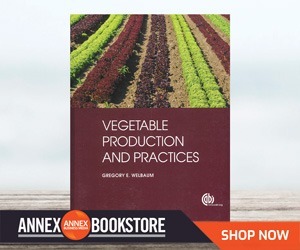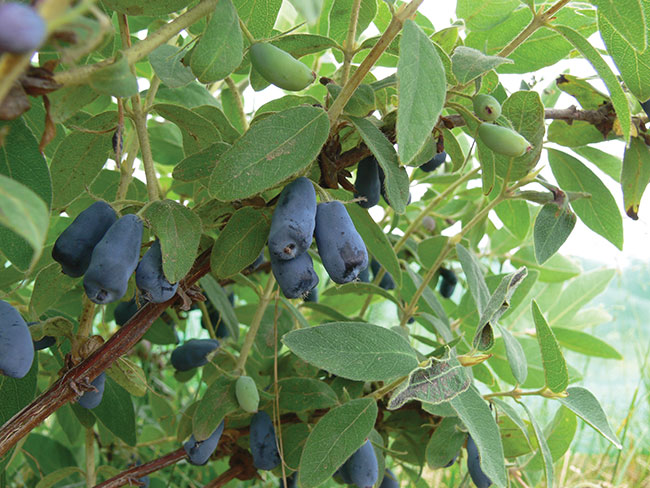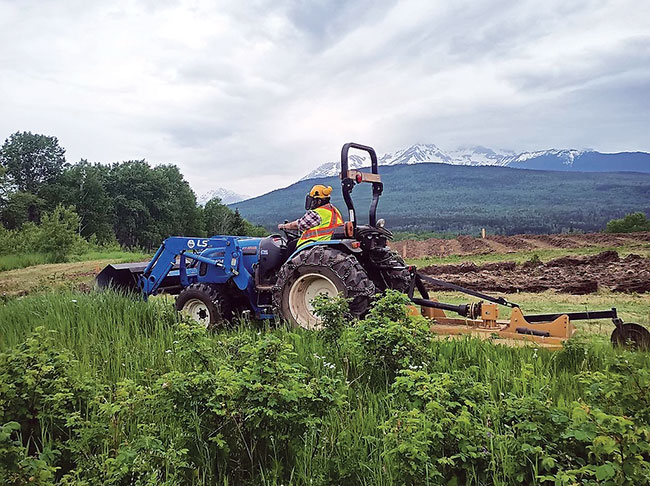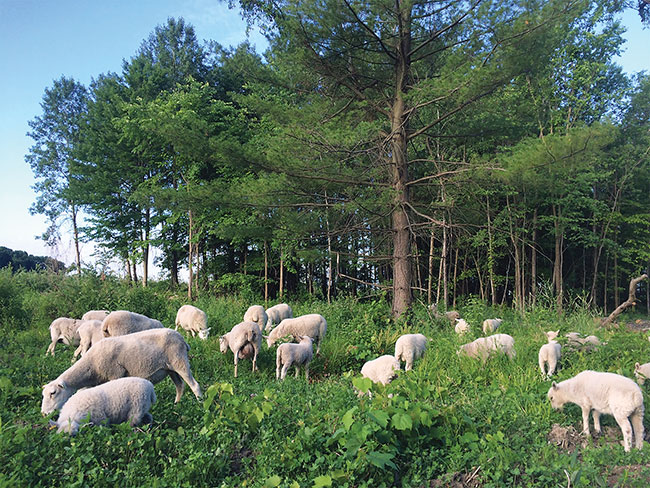| |
| |
 |
 |
| |
 |
|
@{mv_date_MMM d, yyyy}@ |
|
| |
 Two experts – FCC business advisor Glen Kroeker and Tomas Nilsson with Olds College – weigh in on actions you can take today to make your farm more efficient.
» Read More...
Two experts – FCC business advisor Glen Kroeker and Tomas Nilsson with Olds College – weigh in on actions you can take today to make your farm more efficient.
» Read More...
A scientist at Michigan State University has received a $3.95 million grant to research blueberry fruit rot, including two frequent problems: anthracnose fruit rot and botrytis fruit rot.
» Read More...
A mysterious new problem is threatening B.C.’s blueberry industry. Researchers on a two-year project funded by Genome BC are playing the role of plant detectives to solve this mystery.
» Read More...
Updated guidance from the CFIA for seed regulations will provide clear direction for plant breeders.
» Read More...
Buitenhuis breaks down what biologicals are, some of the research being conducted at Vineland on biological controls, as well as what to know when using a biological product.
» Read More...
|
| |
 |
 |
| |
|
| |

Successful vegetable production in a modern competitive market requires an understanding of many more factors than the biology of crops and the production techniques involved. This major new textbook brings the science and practice of vegetable production right up to date by addressing modern culture techniques and the recent challenges of consumer demand facing producers today.
» More Info |
| |
|
| |
 Since commercial production began in Ontario around 15 years ago, haskap has become the largest specialty berry crop by acreage in the province, with more than 200 acres under cultivation. Yet most consumers still have no idea what a haskap berry is. The fast-growing berry is akin in colour and consistency to blueberries, but with tangy notes of raspberry and rhubarb.
» Read More...
Since commercial production began in Ontario around 15 years ago, haskap has become the largest specialty berry crop by acreage in the province, with more than 200 acres under cultivation. Yet most consumers still have no idea what a haskap berry is. The fast-growing berry is akin in colour and consistency to blueberries, but with tangy notes of raspberry and rhubarb.
» Read More... |
| |
 In 2022, the B.C. Ministry of Agriculture and Food launched the Regenerative Agriculture and Agritech Network advisory group. Its goal was to create a strategy for a more resilient food system by adopting more sustainable agricultural practices and utilizing agritech. Jacob Beaton, owner of Tea Creek and RAAN member, says Indigenous agriculture is inherently regenerative.
» Read More...
In 2022, the B.C. Ministry of Agriculture and Food launched the Regenerative Agriculture and Agritech Network advisory group. Its goal was to create a strategy for a more resilient food system by adopting more sustainable agricultural practices and utilizing agritech. Jacob Beaton, owner of Tea Creek and RAAN member, says Indigenous agriculture is inherently regenerative.
» Read More... |
| |
 Silvopasture provides landowners the opportunity to enhance overall productivity and biodiversity of grazing land or degraded woodlots with a short-term return of forage and long-term agroforestry potential. Management is a key factor of this mixed agriculture practice, which can be a possible source of added income and regenerative agriculture benefits.
» Read More...
Silvopasture provides landowners the opportunity to enhance overall productivity and biodiversity of grazing land or degraded woodlots with a short-term return of forage and long-term agroforestry potential. Management is a key factor of this mixed agriculture practice, which can be a possible source of added income and regenerative agriculture benefits.
» Read More... |
| |
| |
|
| |

|
| |
| |










